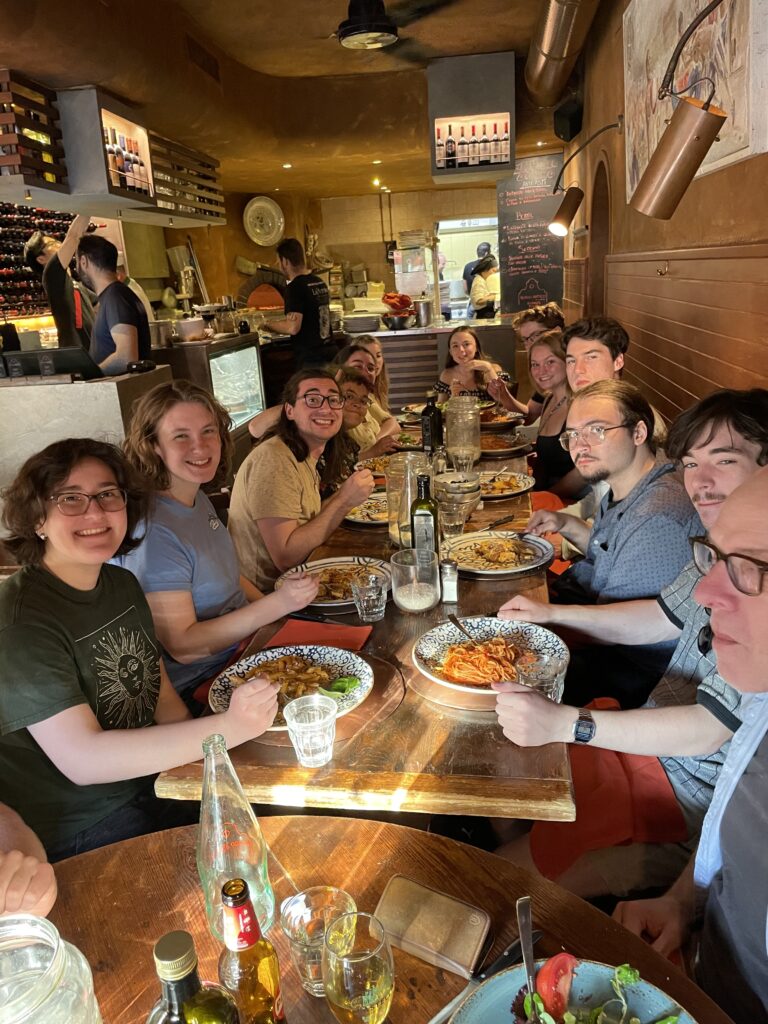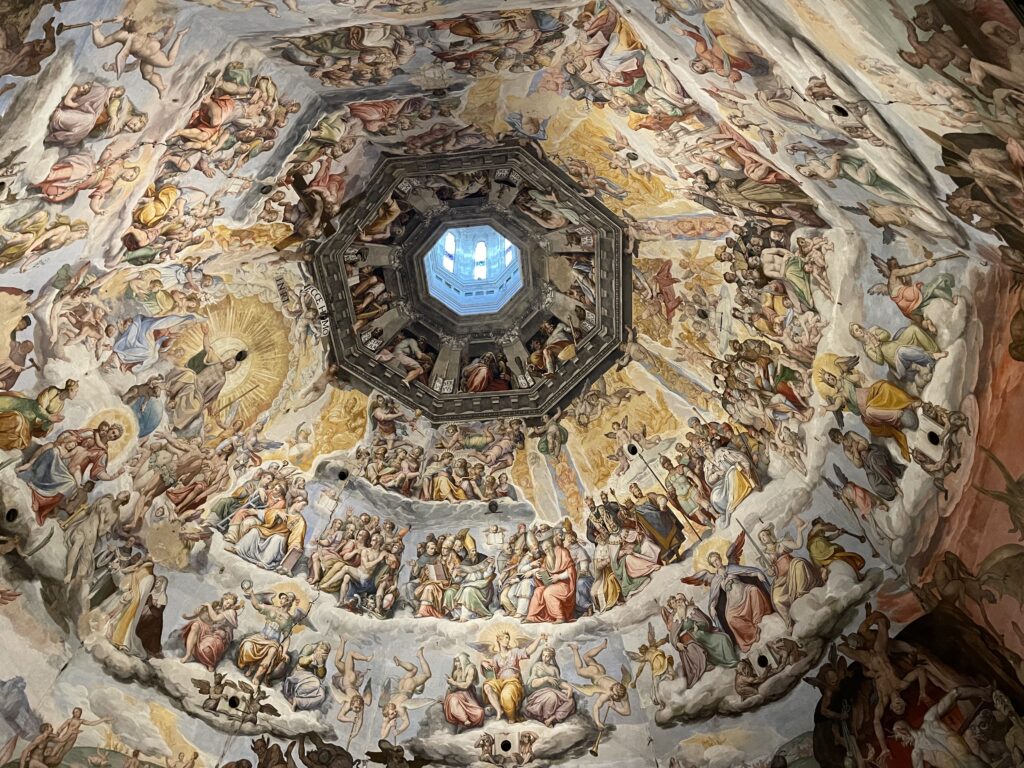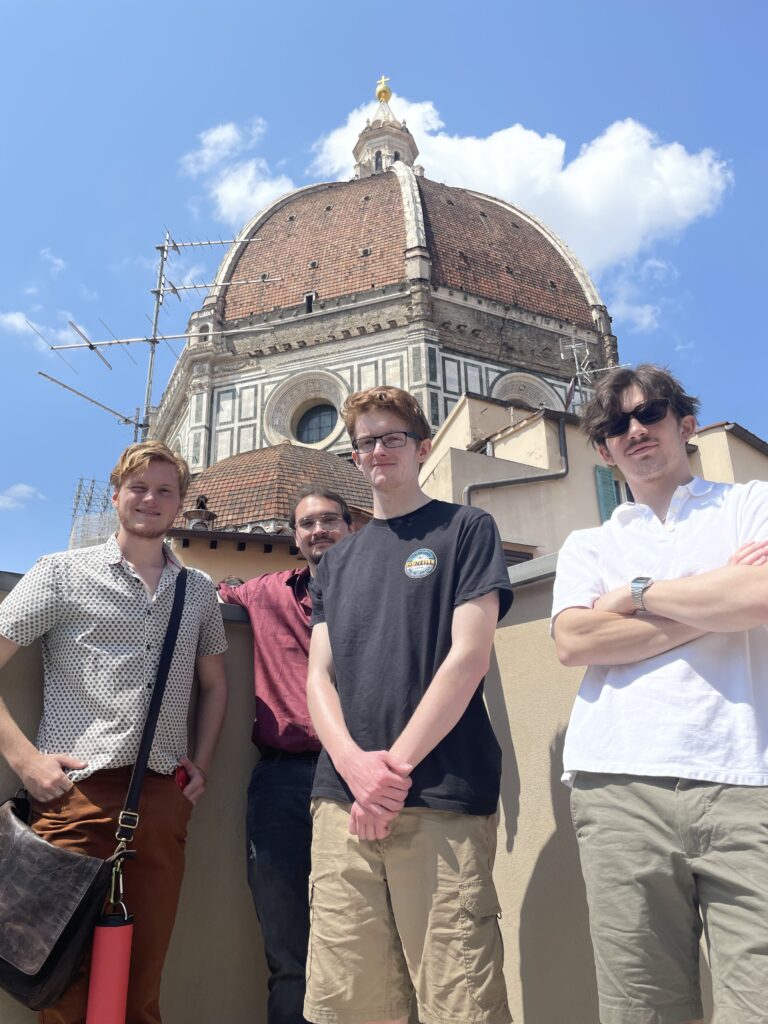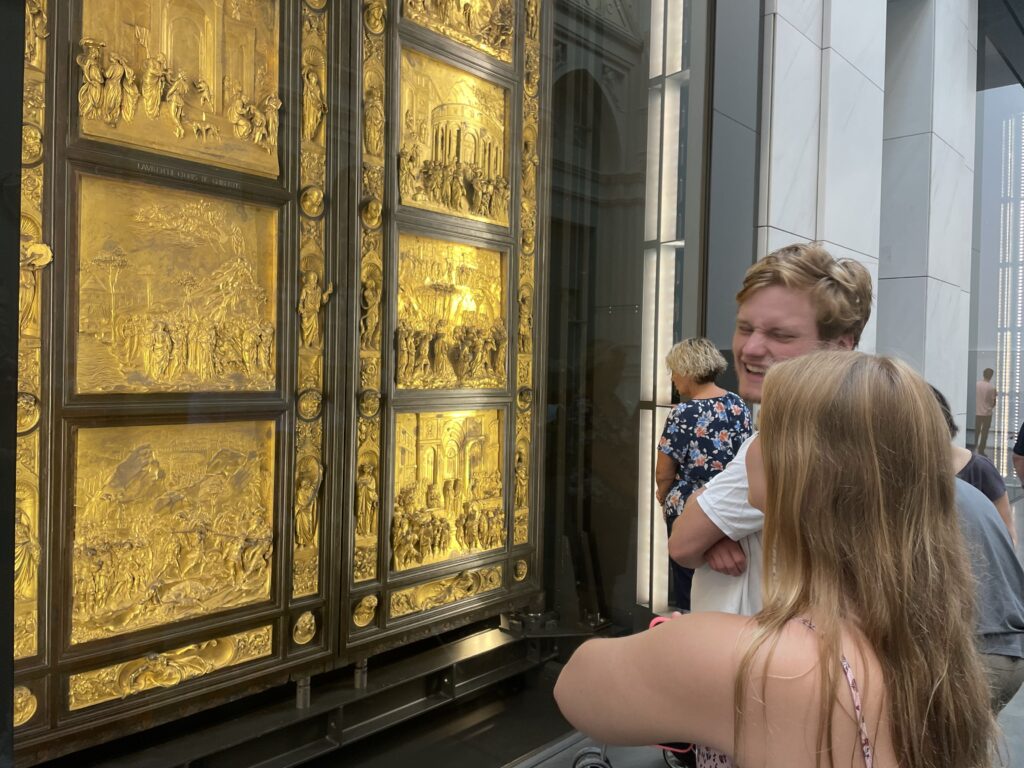JIMMY KELLER
Special to The Leader
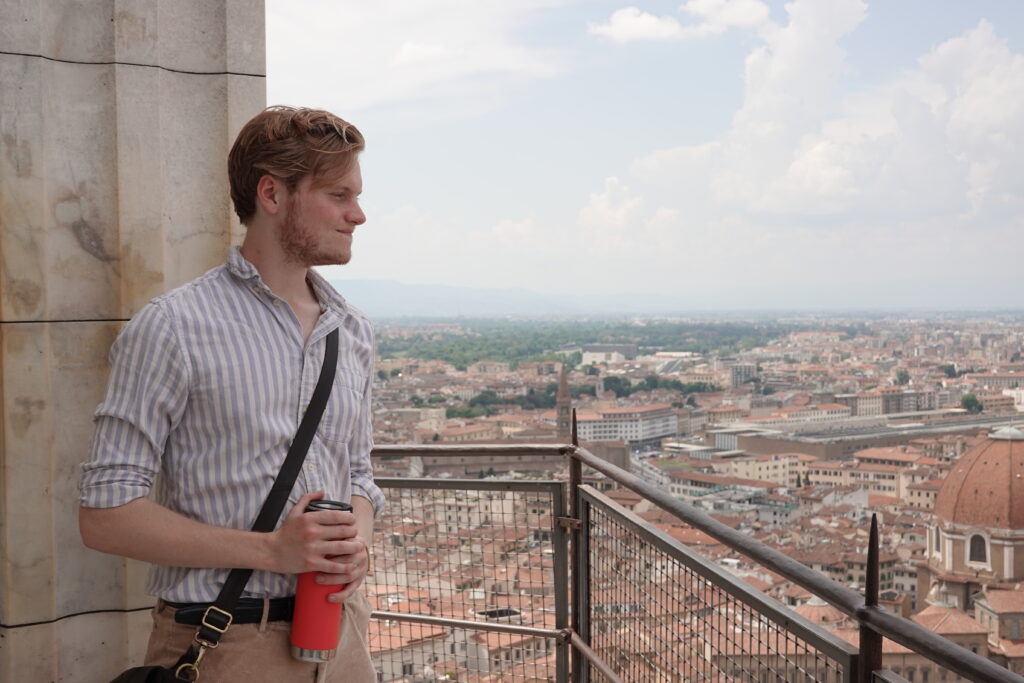
As I am writing this, I and 14 other students are in Florence, Italy. During a two-week art history class, we saw everything from the statue of David to Ghiberti’s bronze baptistry doors. We climbed up and down 926 steps to the top of the Duomo designed by Brunelleschi. Just the other day, we visited a mosaic studio that has been around since the 1500s, still using the same technique and tools as they did hundreds of years ago.
The most extraordinary part of Florence though is just that.
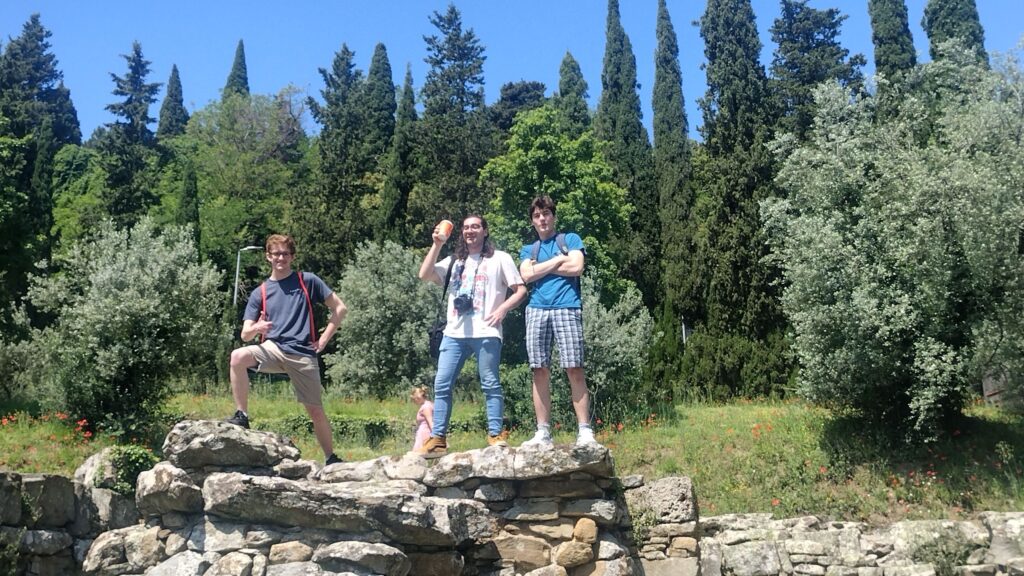
The entire city is a period of the past sculpted for us to experience today. A place to experience the art, the wealth and the architecture. We also couldn’t leave out the authentic Italian restaurant owner Zio Gigi who fed us well and sang enthusiastically almost the entire meal.
While experiencing all of this history, art and culture, it almost puts you back in time. You begin to imagine the labor that went into the enormous frescos and hear the hammering “ping” of a chisel. Through the experience, you can’t help but also imagine the levels of exhaustion, the labor you cannot escape and the tension from those in power.
The art we create today is built upon the art created hundreds of years ago. You can’t build the future without experiencing the past. If we put ourselves in Michelangelo’s shoes, we can feel our arms sore from the repetitive hammering, our eyes red from marble dust, our stomachs empty as the product of dedication to finish.
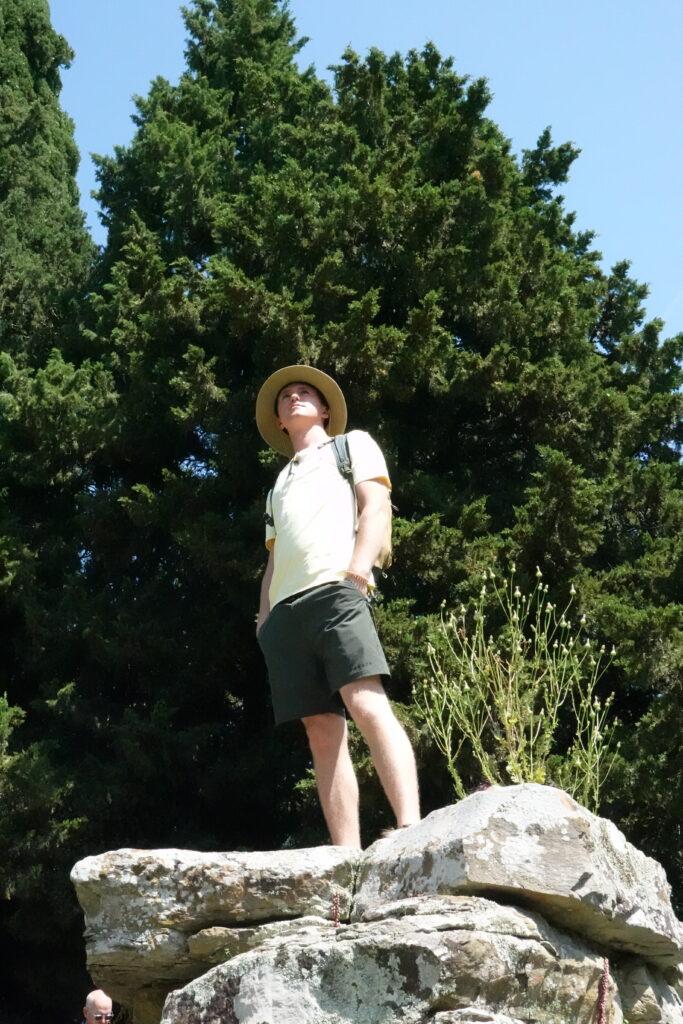
So why go on?
The process for artists then is more similar than different to us artists today. We have similar struggles and stress. We find ourselves exhausted and frustrated. We are constantly seeking a balance between creation and life.
Michelangelo continued for the same reason many of us push through. Art is our passion and has become a very integral part of our lives. The journey has waves of agony and ecstasy but in the end, what matters is the joy and pride from the act of creating.
Lorenzo Galligani is a contemporary sculpture artist just outside of Florence. He began sculpting at 16 and studied under some of the best current sculpture artists and restorers. His studio, just outside of Florence, was located across an abandoned stone quarry and filled with blocks of marble, traditional tools and incredible finished pieces. It was as if he was born in the Renaissance and then traveled to the present to create contemporary masterpieces.
After spending part of the day with Galligani, we didn’t just get knowledge on the process of sculpture, but also invaluable wisdom from a humble creator.
His advice can very much be adapted to any artist. For him, Galligani explained how the pleasure comes from the process, but mostly from the challenge. He spoke on the importance of growth and taking what you did previously, and seeing how it can be done better in the projects that follow. This he explained as a constant discussion with himself: “I spend too much time with Lorenzo, it is constantly me against myself.” The personal battle is fought within but it is something every artist experiences. This inner discussion helps drive growth.

It is also important to be open to all teachers and masters. “Even if you’re not being taught, still observe because you may find yourself using that information later on,” Galligani said.
The best advice Galligani gave actually wasn’t about technique or growth, but ironically when to quit. As art students, we have deadlines, get unavoidably stressed and sometimes lose enthusiasm as a result. He explained that when you feel good about your piece, that is when to stop for the day. It is not after you work until midnight so you end in frustration. If you end your work with a positive mindset, you will feel energized to revisit it the day after, again with a positive mentality.
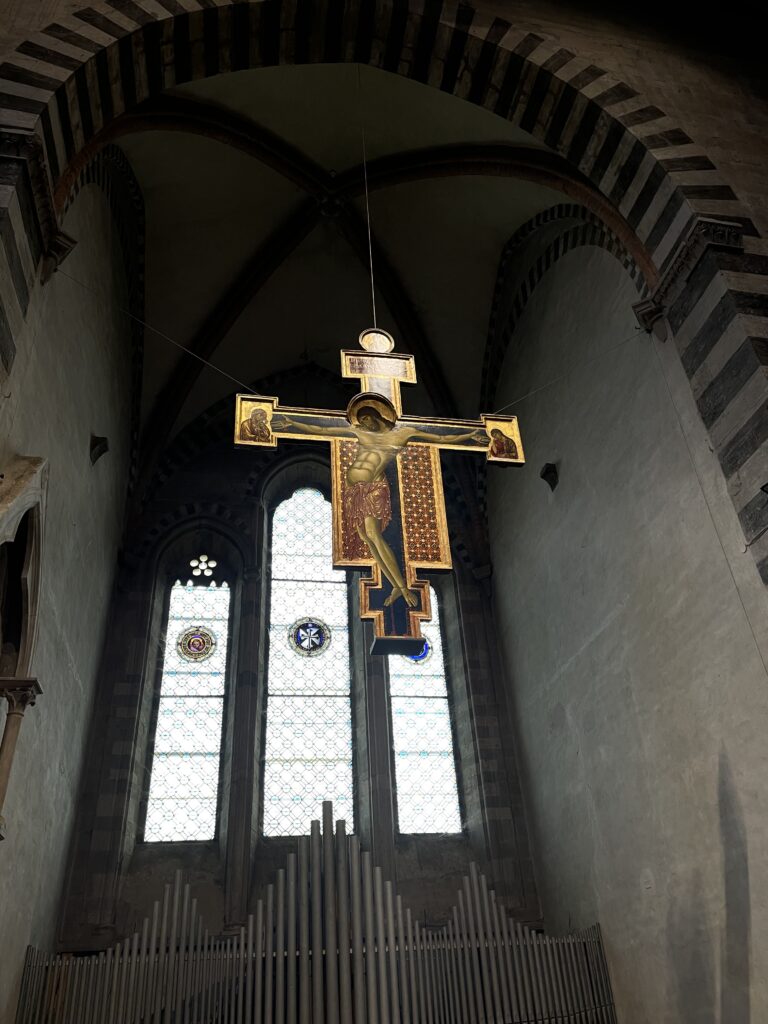
Additionally, to keep a positive artistic work ethic, he emphasized that he makes art that he wants to create, not what the market wants.
The current marble carving he was producing was of his young son. His son had a concentrated expression as he sewed together a sail. That piece is significant to him because it was a part of his story.
Everyone has a story. If the artist tells theirs through art, that also inspires motivation and energizes passion. Then, the market will follow because your story is unique. Your art will not blend in with everyone else’s.
While traveling across the world to experience artworks and studios, the connection through time is a path that is unique to very few places. Lorenzo and many of the other people and places we experienced throughout Italy was something every artist should experience. The main part of this art column is to share as much about the art world inside and outside of Fredonia. There is much more beyond the classroom that needs to be discovered and shared.

